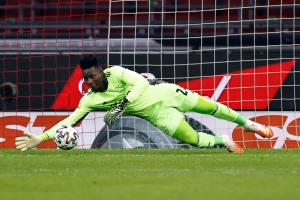Code of Ethics
1. The Falcon Flash staff will report in a balanced and objective way in
reporting the truth. The staff will maintain integrity and credibility with all
reporting means. (Poynter)
2. The Falcon Flash staff will follow guidelines for accuracy and fairness while
responsibly reporting and writing stories. (Poynter, NSPA)
3. The Falcon Flash staff will use transparency in reporting of sources and
topics as they relate to the audience and the community. (Poynter)
4. The Falcon Flash staff will engage the needs of the community through the
stories, articles, and topics the staff covers. (Poynter)
5. The Falcon Flash staff will identify sources they use in their stories/articles.
(SPJ)
6. The Falcon Flash staff will avoid stereotyping by race, gender, age, religion,
ethnicity, sexual orientation, etc. (SPJ)
7. The Falcon Flash staff will never plagiarize and remain an independent
entity. (SPJ, NSPA)
8. The Falcon Flash staff will never distort news photos or videos. (SPJ)
9. The Falcon Flash staff will take accountability for all of its actions on
reporting, writing, and publishing. (NSPA)
10. The Falcon Flash staff asks that letters to the editor, guest columns or
other submissions be 300 words or less and contain the author’s name,
address and signature. All submissions will be verified. (SPRC)
11. The Falcon Flash editorial board reserves the right to withhold a letter or
column or other submission and return it for revision if it contains unprotected
speech or grammatical errors that could hamper its meaning. Deadlines for
letters and columns will be determined by each year’s student staff, allowing
sufficient time for verification of authorship prior to publication. (SPRC)
12. The Falcon Flash staff members will strive to correct errors prior to
publication; however, if the editorial board determines a significant error is
printed, the editorial board will determine the manner and timeliness of a
correction. (SPRC)
13. The Falcon Flash editorial board reserves the right to accept or reject any
ad in accordance with its advertising policy. Electronic manipulations changing
the essential truth of the photo or illustration will be clearly labeled if used.
The duly appointed editor or co-editors shall interpret and enforce this editorial
policy. (SPRC)
14. Absent a written agreement indicating otherwise, The Falcon Flash student
journalists own the copyright to the works they create. Each media outlet
should ensure it has clear policies in place for staff members and the
publication that spell out ownership and the right of the publication to use
student work. (SPRC)
15. Final content decisions and responsibility shall remain with the student
editorial board. The Falcon Flash will not avoid publishing a story solely on the
basis of possible dissent or controversy. (SPRC)
16. Sources do not have the right to review materials prior to publication.
Allowing sources to preview content at any stage of production raises serious
ethical and journalistic practice questions. Reporters, following media
guidelines or editor directions, may read back quotes that are either difficult to
understand, unclear or may need further explanation. (SPRC)
17. The Falcon Flash student media is a digital news source, but it is still part
of the historical record. The Falcon Flash’s primary purpose is to publish the
truth, as best we can determine it, and be an accurate record of events and
issues from students’ perspectives. For these reasons, the editorial board will
not take down or edit past articles except in extraordinary circumstances.
If someone requests a takedown, the board may consider the following resource
for questions and actions. Regardless of the outcome, the Editor-in-Chief will
respond in writing to the request explaining the board’s action(s) and rationale
for the final decision. (SPRC)
18. Journalism is based on truth and accuracy. Using unnamed sources risks
both of those standards. For that reason, students should seek sources willing
to speak on the record. Unnamed sources should be used sparingly and only
after students evaluate how the need for the information balances with the
problems such sources create. Occasionally, a source’s physical or mental
health may be jeopardized by information on the record. In this instance,
journalists should take every precaution to minimize harm to the source.
(SPRC)
19. In the event of the death of a student or staff member, a standard,
obituary-type recognition will commemorate the deceased in the newspaper
and online news site. A maximum one-fourth page feature, or similar length for
each obituary, should be written by a student media staff member and placed
on the website within 24 hours and in the newspaper at the bottom of page
one. (SPRC)
20. The Falcon Flash will establish trust with its viewers by its professional
manner with sources and community. (“The Journalist’s Creed,” Missouri
School of Journalism)
21. The Falcon Flash will be tolerant but never careless with sensitive topics.
(TJC)
22. The Falcon Flash will be self-controlled but patient. (TJC)
23. The Falcon Flash will commit to writing and reporting journalism of
humanity and for today’s world. (TJC)





